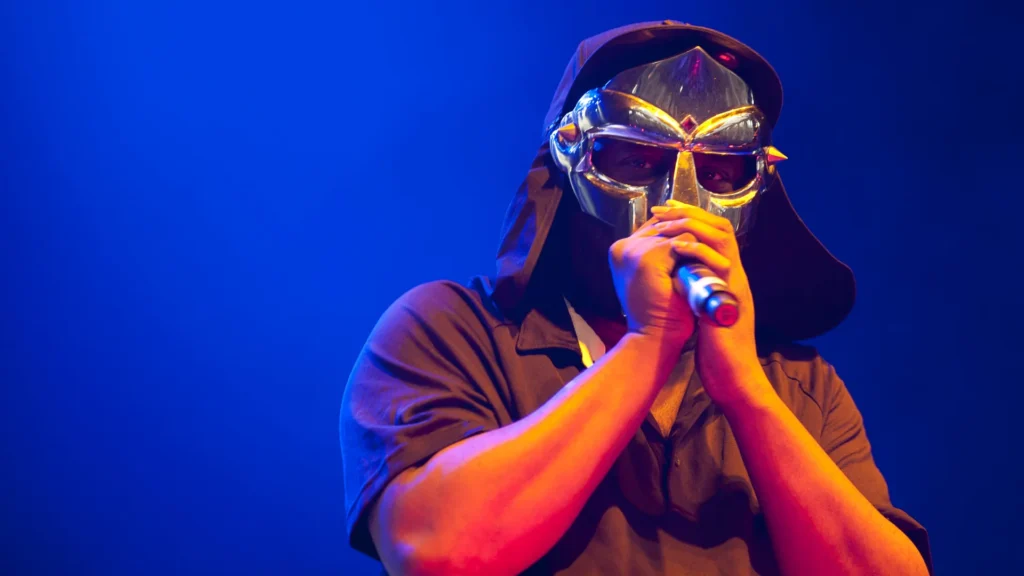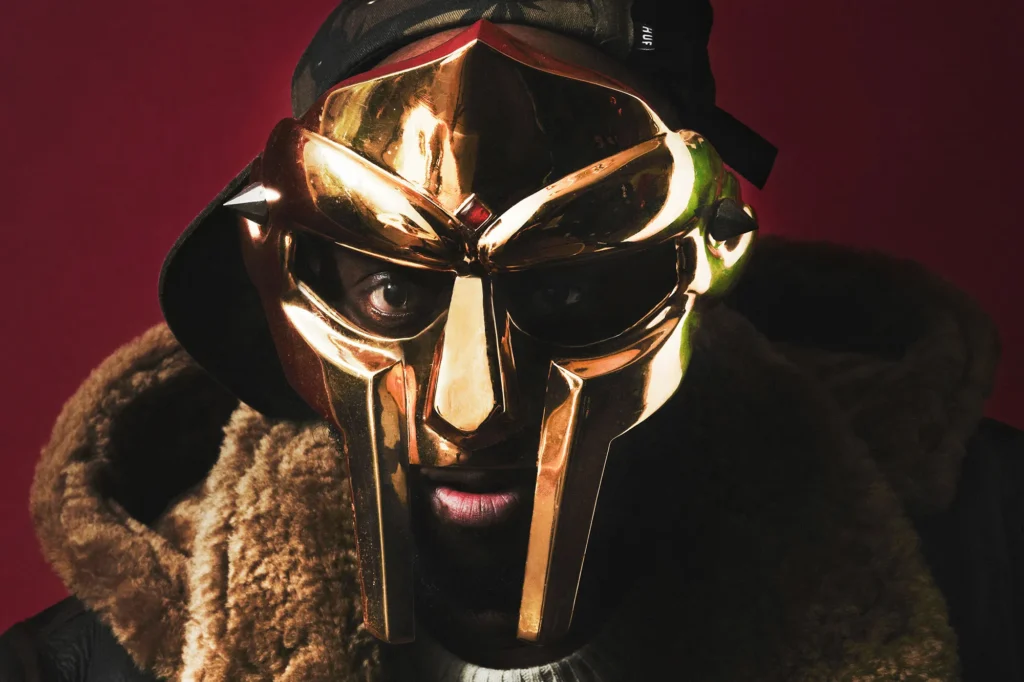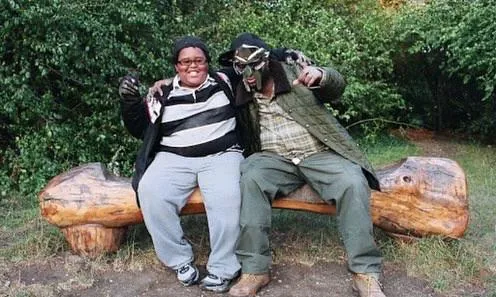
MF DOOM's cause of death still remains a mystery to this day. The enigmatic and influential rapper, who left us on October 31, 2020, had the entire hip-hop community and fans across the globe mourning his loss. Although the news of his demise didn't surface until December 31, 2020, the question of what led to MF DOOM's passing remained unanswered for several months. During this time, rumors ran wild, with some speculating it was due to a heroin overdose. However, on January 4, 2021, his family confirmed that MF DOOM had passed away from natural causes. In this article, we'll delve into the circumstances surrounding MF DOOM's death, his impressive career, and his lasting legacy in the world of hip-hop.
Who was MF DOOM?
MF DOOM, also known as Daniel Dumile, stood as a remarkable American rapper and record producer. His unmatched talent lay in his intricate rhyme schemes, his clever use of comic book and science fiction imagery, and, of course, his iconic masked persona.
Dumile embarked on his musical journey in the late 1980s, co-founding the rap group KMD with his younger brother. However, after KMD disbanded in the early 1990s, he took a hiatus from the music industry and later emerged as MF DOOM. In 1999, he made his solo debut with the critically acclaimed album "Operation: Doomsday."
Throughout his illustrious career, MF DOOM released numerous solo albums, collaborative projects, and instrumental works. He collaborated with diverse artists from various genres, including Madlib, Danger Mouse, Ghostface Killah, and Thom Yorke. His influence spread like wildfire, inspiring countless artists within the hip-hop and alternative music scenes.
The Man Behind the Mask

One of the defining aspects of MF DOOM was his masked persona, inspired by the Marvel Comics villain Doctor Doom. The mask, featuring a metal faceplate with slits for the eyes and the stylized "MF" logo, was an intentional artistic choice that added to his enigmatic image as a rapper and producer.
But why did MF DOOM don the mask? The decision came after a personal tragedy in which his brother and fellow KMD band member, DJ Subroc, tragically lost his life in a car accident. The mask allowed MF DOOM to separate his personal life from his musical alter ego, providing an outlet to express his artistic vision fully. Moreover, it added a layer of mystery and allure to his performances, making him stand out amidst a sea of artists.
Family and Legacy

Despite being a private individual, we know that MF DOOM, born Daniel Dumile, had a wife named Jasmine and several children. He kept his personal life guarded, and little was disclosed about his family and relatives. Nevertheless, it is known that he had a brother named Subroc, who was part of KMD before their untimely disbandment due to his brother's tragic passing in 1993. This event surely influenced the themes and tone of MF DOOM's music in the years to come.
The Legacy of MF DOOM
MF DOOM's legacy as a rapper and producer remains unmatched and far-reaching. Revered as one of the most innovative and influential artists of his generation, his impact on hip-hop and alternative music reverberates to this day.
One of the key aspects of MF DOOM's legacy is his unparalleled approach to lyricism. His intricate and complex rhyme schemes, clever wordplay, and storytelling abilities set him apart from his peers. He paved the way for other artists, encouraging them to push the boundaries of what was possible in hip-hop.
Moreover, MF DOOM's creative use of sampling and his fusion of different genres and styles made him a standout collaborator. He worked with a diverse range of artists, bridging the gap between hip-hop and other musical forms.
Of course, his distinctive masked persona and the imagery borrowed from comic books and science fiction played a significant role in shaping his legacy. These elements contributed to the sense of mystique and otherworldliness that permeated his music and visuals.
Career Highlights
MF DOOM's music career spanned several decades, marked by numerous albums, collaborations, and instrumental projects. Here's a glimpse of some key moments:
In the late 1980s, he co-founded the rap group KMD with his younger brother, and together, they released two albums before the group disbanded in the early 1990s.
In 1999, MF DOOM made his solo debut with the acclaimed album "Operation: Doomsday," which showcased his innovative lyrics and production.
Subsequent releases, such as "Mm.. Food," "Madvillainy" (a collaboration with Madlib), and "The Mouse and the Mask" (a collaboration with Danger Doom), further solidified his status as a hip-hop icon.
Throughout his career, MF DOOM also engaged in visual artistry, creating artwork for many of his album covers.
Apart from his solo endeavors, he was also part of rap groups like Monsta Island Czars and JJ Doom.
Tragically, MF DOOM passed away on October 31, 2020, leaving an indelible mark on the world of hip-hop and alternative music.
Unraveling the Cause of MF DOOM's Passing
As much as fans yearned to understand the cause of MF DOOM's passing, the official announcement from his family or representatives did not come to light. Nonetheless, on December 2020, his wife Jasmine took to Instagram to confirm MF DOOM's demise on October 31, 2020. Though the cause of death wasn't disclosed, she expressed gratitude for the overwhelming support from fans and requested privacy for herself and their family. As of now, the exact cause of MF DOOM's passing remains shrouded in secrecy.
Speculation arose, linking MF DOOM's passing to a heroin overdose, but this was debunked by his family. Suicide and foul play were also ruled out as contributing factors. Born in Britain and raised in Long Island, New York, MF DOOM's journey in the music industry began in 1988 with KMD, a band he formed with his brother. Their disbandment in 1993, after the tragic loss of DJ Subroc, marked a significant turning point in Dumile's life, propelling him toward his solo path as MF DOOM.
The Undying Lyrics of MF DOOM
MF DOOM's discography boasts a treasure trove of unforgettable verses and songs that have resonated with fans throughout the years. Let's take a look at some of his most famous raps:
- "Accordion" - From the album "Madvillainy," this track features DOOM's trademark flow and wordplay, captivating listeners with lines like "Living off borrowed time, the clock tick faster."
- "Rhinestone Cowboy" - Found on "Mm.. Food," this song pays homage to the late Tupac Shakur, showcasing DOOM's clever lyrics and multisyllabic rhymes.
- "Beef Rap" - Also on "Mm.. Food," this playful track explores the world of beef in hip-hop, with DOOM rapping about everything from tofu to beef jerky. His witty wordplay shines through with lines like "I'm like a veggie burger with the lot."
- "ALL CAPS" - From the acclaimed "Madvillainy" album, this track features DOOM and Madlib trading verses over a funky beat. The catchy chorus "ALL CAPS when you spell the man's name" has become one of DOOM's most famous lines.
- "Doomsday" - A classic from the album "Operation: Doomsday," this track showcases DOOM's storytelling ability as he recounts his struggles and triumphs over a soulful beat.
- "Figaro" - Another gem from "Madvillainy," this track is a masterclass in wordplay, with DOOM rapping over a hypnotic beat about everything from chess moves to the Illuminati.
- "Great Day" - Found on "Mm.. Food," this feel-good track features a catchy chorus and memorable verses from DOOM, including the line "It ain't nuttin' like a fistful of cash or a blissful bowl of hash."
- "One Beer" - Also on "Mm.. Food," this humorous track addresses the dangers of alcohol consumption, with DOOM rapping over a funky beat about getting drunk and losing his keys.
- "Rhymes Like Dimes" - From "Operation: Doomsday," this track sees DOOM trading verses with fellow underground rapper DJ Cucumber Slice over a classic boom-bap beat.
- "Gazillion Ear" - From the album "Born Like This," this dark and hypnotic banger showcases DOOM's signature flow and intricate rhymes, including the line "Villain get the money like curls / They just trying to get a nut like squirrels in his mad world."
- "Hoe Cakes" - Also on "Mm.. Food," this playful track explores the theme of gold-digging women with DOOM's clever lyrics and multisyllabic rhymes over a funky beat.
- "Vomitspit" - Another standout from "Mm.. Food," this fast-paced banger features DOOM's intricate wordplay and memorable lines like "Rap snitches, telling all their business / Sit in the court and be their star witness."
Albums that Defined MF DOOM
MF DOOM's discography is a treasure trove of exceptional music. Here are some of the albums that defined his illustrious career:
- "Operation: Doomsday" (1999) - This debut solo album introduced the world to the enigmatic MF DOOM and featured classic tracks like "Doomsday" and "Rhymes Like Dimes."
- "Take Me to Your Leader" (2003) - Under the moniker King Geedorah, this album showcased DOOM's prowess as a producer and rapper.
- "Mm.. Food" (2004) - A concept album with food-themed tracks, "Mm.. Food" displayed DOOM's signature wit and humor.
- "Madvillainy" (2004) - A legendary collaboration with producer Madlib, considered a masterpiece of underground hip-hop.
- "Born Like This" (2009) - DOOM's final solo album before his untimely passing, featuring collaborations with artists like Raekwon and Ghostface Killah.
- "NehruvianDoom" (2014) - A collaborative effort with rapper Bishop Nehru, with DOOM as a producer and rapper.
Remembering MF DOOM's Legacy
While MF DOOM may not have received many mainstream awards, his impact on the world of hip-hop was immeasurable. Critics and fans recognized his brilliance, and his influence reached far and wide.
- In 2004, "Madvillainy" was named one of the top albums of the year by publications like Rolling Stone and Pitchfork.
- In 2006, MTV ranked MF DOOM #15 on their list of the "greatest MCs of all time."
- In 2011, Complex named DOOM one of the "50 greatest storytellers in hip-hop."
- In 2015, he was honored with the "Metal Face Legend" award by Consequence of Sound, acknowledging his immense influence on hip-hop.
FAQs About MF DOOM
To shed light on some common questions, here are a few FAQs about MF DOOM:
Has MF DOOM won a Grammy?
No, MF DOOM did not win a Grammy during his career. Despite being widely acclaimed and influential in the underground hip-hop scene, he did not achieve mainstream success to that extent.
Is MF DOOM better than Eminem?
This is subjective and open to personal interpretation. Both artists are highly respected and influential in hip-hop, but their styles and approaches differ. It's up to individual listeners to decide their preferences.
Was MF DOOM one of the best?
MF DOOM is widely regarded as one of the most innovative and influential artists in the underground hip-hop scene. His unique style, complex lyrics, and innovative production techniques set him apart as one of the best.
Is MF DOOM's music royalty-free?
No, MF DOOM's music is not royalty-free. As a professional musician, his music is subject to copyright laws, and any use without permission or proper licensing may result in legal consequences.
How much-unreleased music does MF DOOM have?
The exact amount of unreleased music MF DOOM had at the time of his passing is unclear. Given his prolific nature as an artist, there may still be a significant amount of unreleased material that could potentially be released posthumously.
What is the most underrated MF DOOM song?
This varies depending on individual taste. Some fans and critics consider tracks like "Gas Drawls" or "Deep Fried Frenz" to be some of DOOM's most underrated songs.
Which rappers were fans of MF DOOM?
MF DOOM was widely praised and admired by many fellow hip-hop artists, including Kendrick Lamar, Tyler, The Creator, Earl Sweatshirt, and many others.
What type of rap did DOOM embody?
MF DOOM's music is often categorized as "underground" or "alternative" hip-hop. He was known for his intricate wordplay, storytelling ability, and unconventional production techniques.
Why was MF DOOM dubbed the villain of hip-hop?
MF DOOM adopted a villainous persona in his music, often referring to himself as "Metal Face" or "The Supervillain." This persona was inspired by classic comic book villains and reflected DOOM's outsider status within the music industry.
How influential was MF DOOM?
MF DOOM's influence on the underground hip-hop scene cannot be overstated. He inspired countless artists and musicians, pushing the boundaries of hip-hop and paving the way for future innovators.
In Conclusion
In conclusion, the cause of MF DOOM's passing remains a mystery, as his family has chosen not to disclose the details. MF DOOM leaves behind an unmatched legacy as one of the most innovative and influential rappers in the hip-hop industry.
